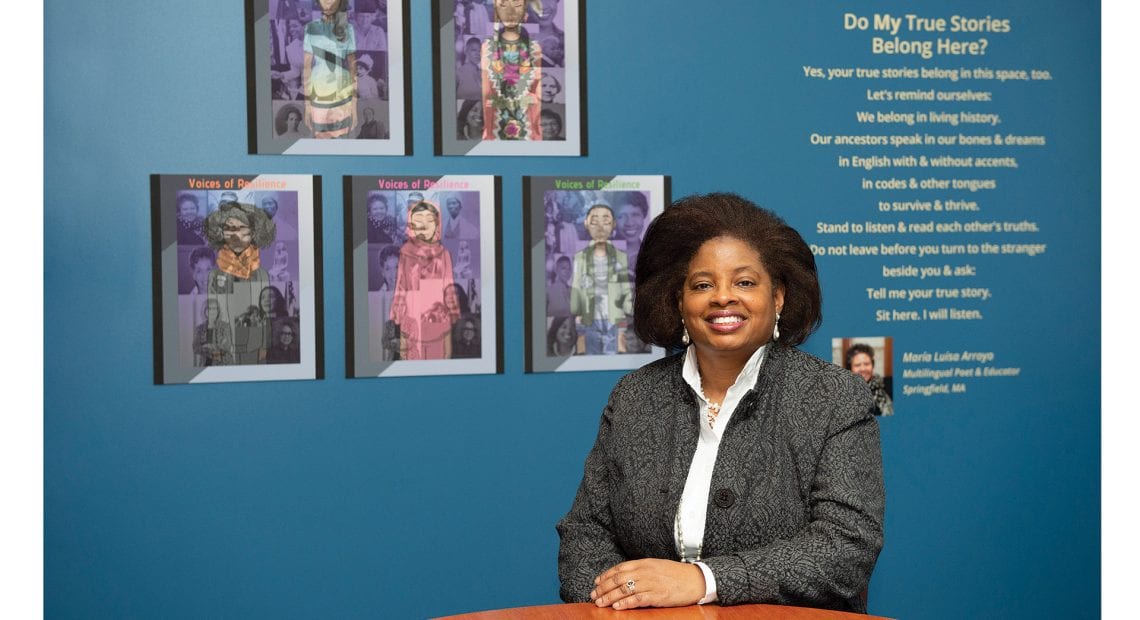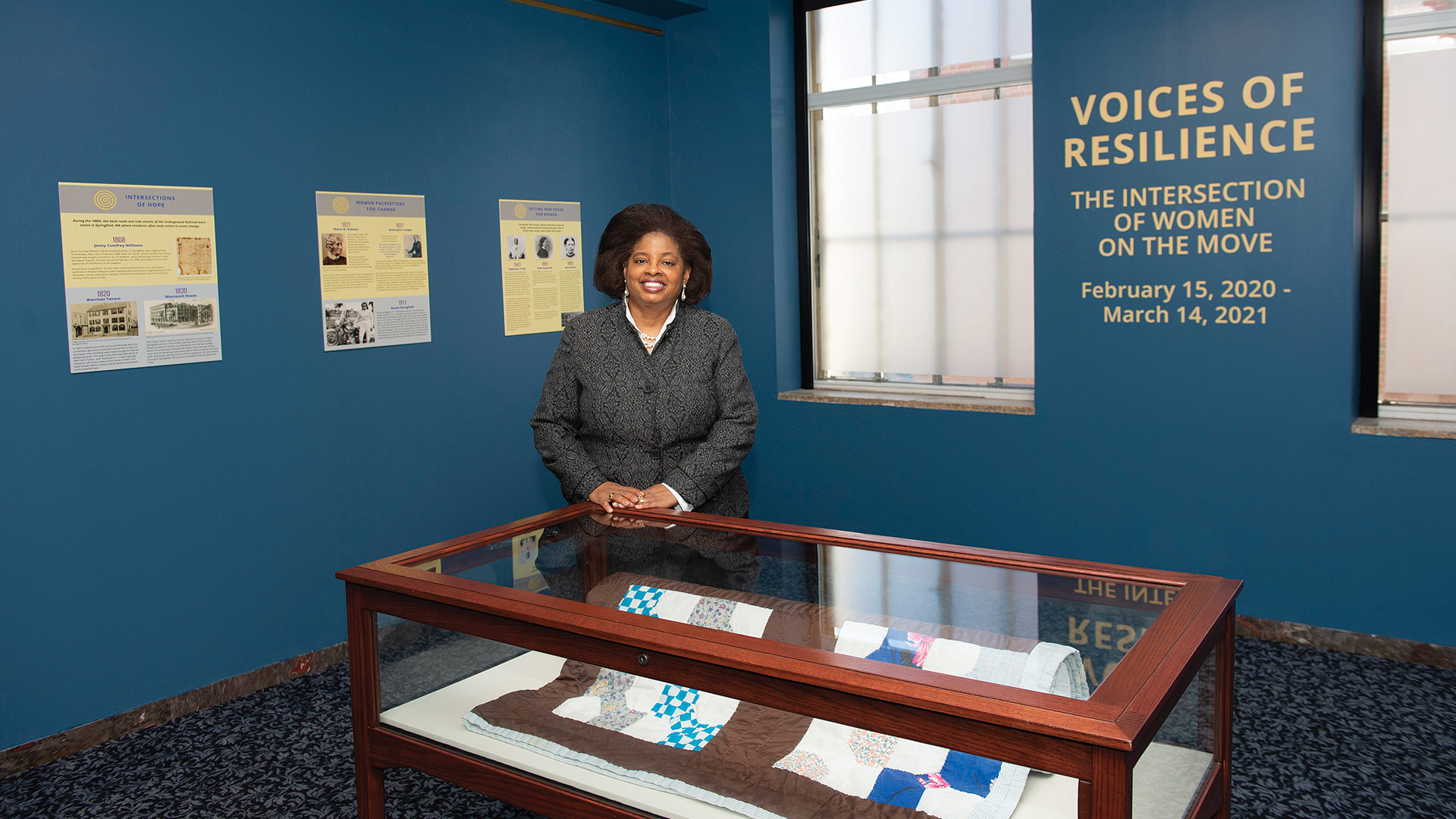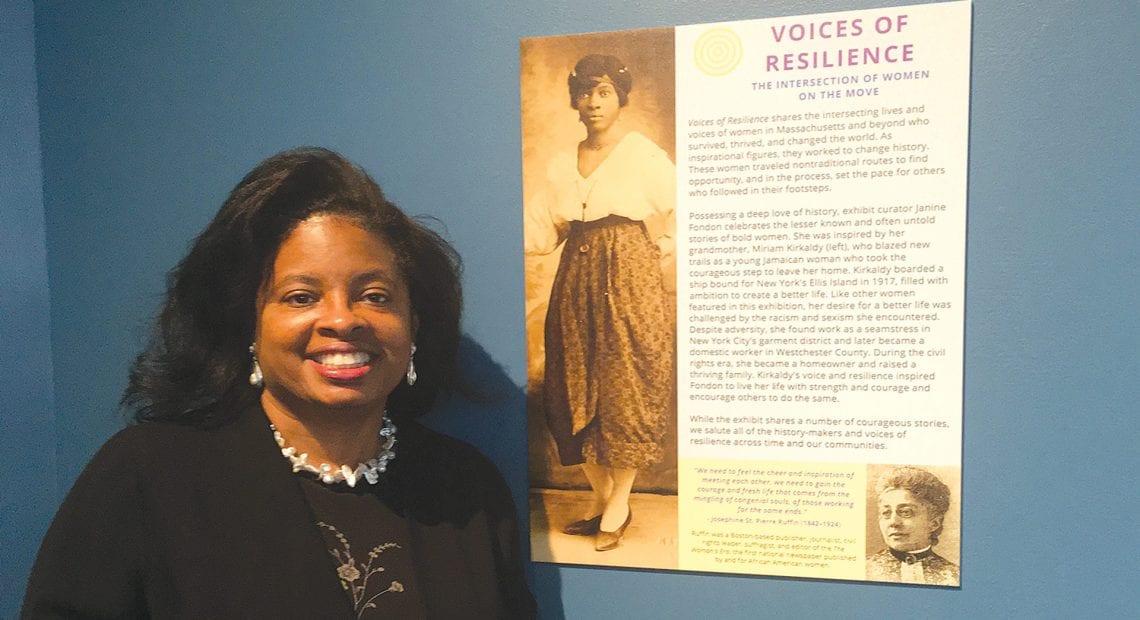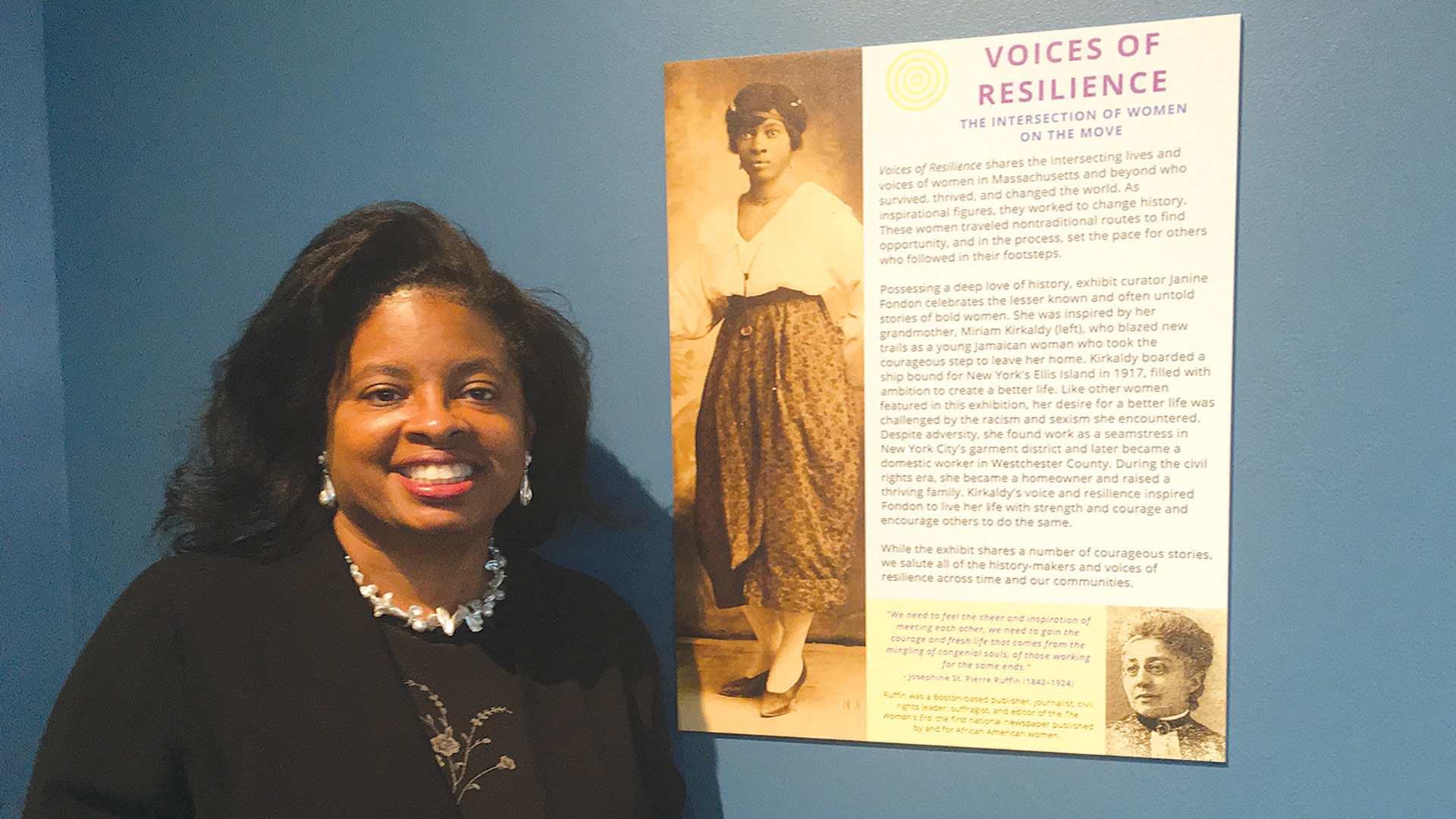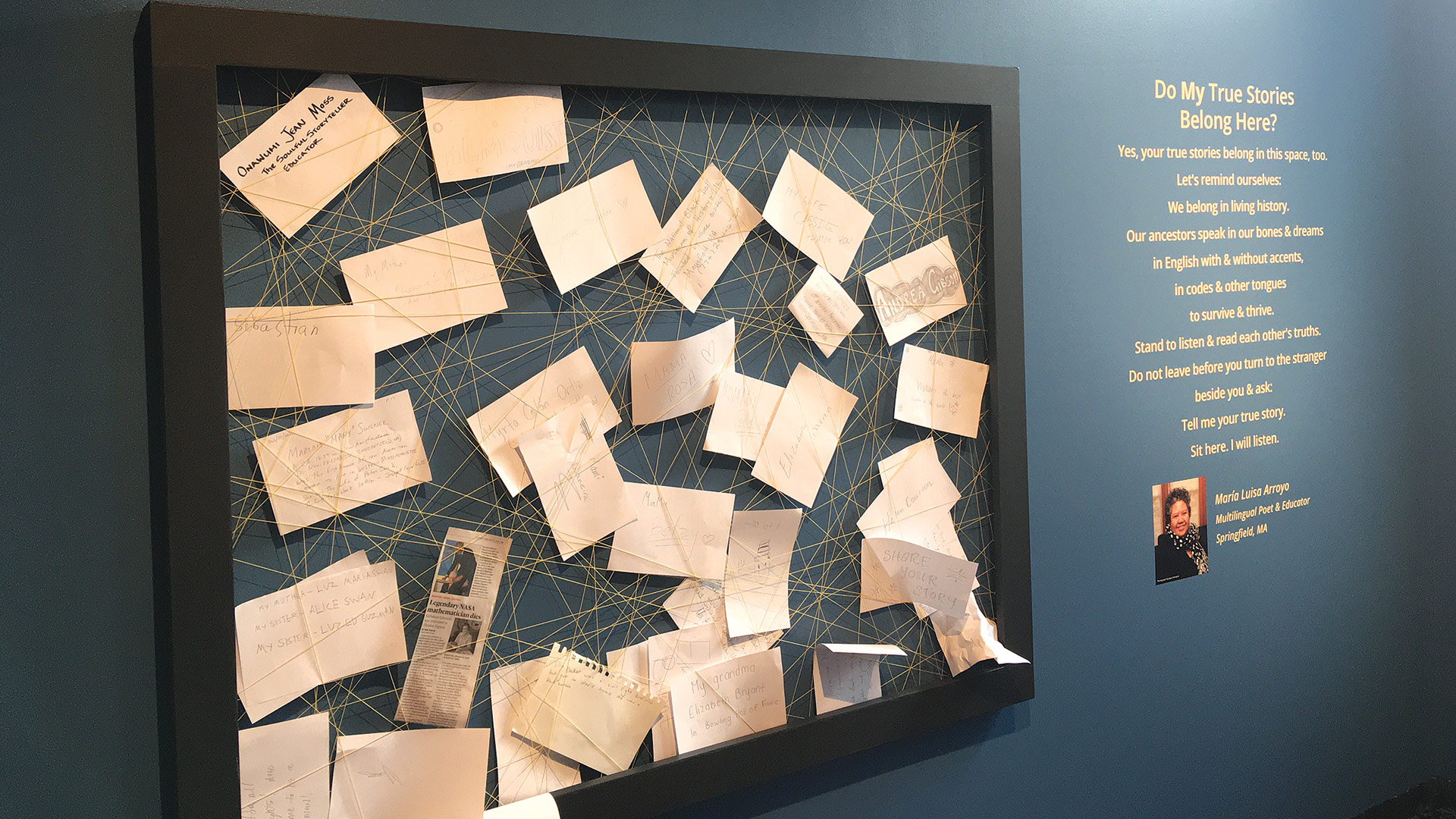Progress Report
By Janine Fondon
On March 8 (International Women’s Day), the 2021 On the Move Forum to Advance Women, presented by Bay Path University, Springfield Museums, and a host of local organizations, virtually hosted some 200 women of all backgrounds from Western Mass. and beyond. Through conversations and speakers, women voiced their hopes and elevated their concerns to support the future success of women in leadership at all levels.
Speakers noted there is much work to be done to change the trajectory of women in companies and organizations, given that women still operate in a world where they are paid less than men. Also, women have limited leadership opportunities in the C-suite and have experienced workplace challenges in the face of the COVID-19 crisis. Also, black women and Latinas still make less than anyone in the workforce, and their opportunities for promotions are certainly limited. Where do we go from here?
The forum theme, “Women in Leadership: This Is What Change Looks Like — Past, Present, and Future,” offered attendees an inter-generational, cross-cultural, gender-inclusive, and history-infused conversation focused on advancing women, led by moderator Nikai Fondon.
The event presented voices and content that showed what change could look like — young, diverse, professional women on the move to create a new world; experienced leaders of all backgrounds who share their expertise; and college-aged women exploring new skills. Now in its fifth year, the event has engaged more than 1,000 women in community conversations and presentations on women’s history, empowerment, and advancement.
“The numbers also show us that change needs to happen to build more inclusive workplaces at all levels and in all industries. We must keep watch that our colleges and universities understand the magnitude of not only recruitment and retention, but belonging and mentoring.”
This year’s event aligned with the priority theme of the 65th session of the United Nations Commission on the Status of Women, “Women in Leadership: Achieving an Equal Future in a COVID-19 World.” According to Catalyst, “in 2020, women of color represented only 18% of entry-level positions, and few advanced to leadership positions. While white women held almost one-third (32.8%) of total management positions in the U.S. in 2020, Asian women (2.2%), black women (4.1%), and Hispanic women (4.5%) held a much smaller share.”
During the forum, the speakers and participants during the conversations voiced the sentiments expressed in these statistics. Most women still face obstacles in moving up the ladder at work. These statistics remind us that young women professionals who are rising to new opportunities in industry may have to pick up the path of experienced women today who still fight these trends after more than 20 years.
The numbers also show us that change needs to happen to build more inclusive workplaces at all levels and in all industries. We must keep watch that our colleges and universities understand the magnitude of not only recruitment and retention, but belonging and mentoring.
Also, as black women, Latinas, and women of color climb the ladder of success, they find that every step along the way may not come with the support they need or expect. A study conducted by Lean In and SurveyMonkey finds that, although more than 80% of white employees view themselves as allies to women of color at work, just 45% of black women and 55% of Latinas say they have strong allies in the workplace. There is more work to be done to build relationships that drive trust and transformation in the workplace, and more conversations need to confirm informal and formal sources of support.
Diversity, Equity, and Inclusion
To help make a change in the workplace, educational institutions, companies, and organizations continue to underscore the importance of diversity, equity, and inclusion. While these efforts allow for some change, we need strategic approaches to systemic racism and inequities that address issues for companies and individuals. Many young professionals, consumers, and communities are at the forefront of social justice, so shifts in social responsibility, outreach, and accountability could drive change on many levels.
Bay Path President Sandra Doran noted in her speech that she has been committed to the advancement of women and the power of education. “I embrace these beliefs because I come from a family of educators and strong women. I have witnessed first-hand the power of higher education for women. My grandmother attended Barnard, a women’s college, and my mother returned to school to earn her degree at a women’s college as an adult learner. With such personal role models, I felt called to be the president of Bay Path.”
However, noting the effects of COVID-19, she noted that, “by now, we all know the burden of the pandemic fell harder on women than on men. Women make up the majority of front-line workers in deeply affected industries like retail, food service, hospitality, and healthcare, and also picked up a disproportionate share of the additional loads of schoolwork, housework, and elderly care. Black women have faced the highest rate of unemployment among women at 8.9%, followed by Latinx women at 8.5%. This pandemic has uncovered the fragility of our systems, from healthcare to daycare to education, and it is our calling, women — and men of substance — to create change. And the pipeline of women in leadership positions has shrunk.”
“As we move past International Women’s Day and Women’s History Month, there must be even more commitment to revisiting practices in workplaces, classrooms, boardrooms, meeting places, and Zoom rooms to deliver equity, belonging, and dismantling ‘isms.’”
Doran also referenced an IBM study that “noted how women on corporate boards and in C-suites around the world have made no progress since 2019, when IBM did its first study on the subject.”
Another report, the 2020 Women in the Workplace study, conducted in partnership with Lean In and McKinsey, tracked the progress of women in corporate America. The data set reflects contributions from 317 companies that participated in the study and more than 40,000 people. According to the report, “the boundaries between work and home have blurred, and women, in particular, have been negatively impacted.”
In the study, women of color were noted as particularly impacted by COVID. “Women — especially women of color — are more likely to have been laid off or furloughed during the COVID-19 crisis, stalling their careers and jeopardizing their financial security. Meanwhile, black women already faced more barriers to advancement than most other employees. This is an emergency for corporate America. Companies risk losing women in leadership — and future women leaders — and unwinding years of painstaking progress toward gender diversity.”
Adverse Impact on Black Women and Latinas
While many black women and Latinas have made strides and found success in corporations and organizations, far too many remain underutilized, left behind, not included, and overlooked for opportunities. The numbers document their trajectory in a world where, in most cases, they are paid less than everyone else. Also, according to a report by CNBC, “employment for black women is 9.7% lower than it was in February 2020. Employment for white men, white women, and black men is down 5%, 5.4%, and 5.9%, respectively.”
A report by Lean In also confirms the experiences of black women in the workplace, noting that black women are significantly underrepresented in leadership roles, much less likely to be promoted to manager (and their representation dwindles from there), more likely to see their successes discounted, and less likely to get the support and access they need to advance. In addition, black women face more day-to-day discrimination at work. They want to lead — and they are motivated to improve their workplaces — but often find themselves unfairly penalized for being ambitious.
These findings should cause us all to pause and revisit our workplace policies, practices, and procedures. While not every black woman may have these experiences, other personal scenarios that they face result in negative trends. Most of all, these findings should prompt us to think about how everyone is treated in the workplace and how we treat each other. Most of all, we should consider how we can understand what others feel and find ways to communicate. If we were all treating each other as ourselves, we would not have these trends.
LGBTQIA+ Equality
While many communities and individuals experience an uncertain landscape in the workplace, we must continue to stay vigilant about trends that impact inclusion. For LGBTQIA+ (lesbian, gay, bisexual, pansexual, transgender, genderqueer, queer, intersex, agender, asexual, and other queer-identifying) communities, the journey to equality continues to “ebb and flow,” as Kathleen Martin of Springfield College and her wife, Andrea Hickson Martin of Bay Path University, noted:
“There is no doubt that there have been tremendous strides over the past decade for LGBTQIA+ equality. In 2012, the Obama administration supported marriage equality. In 2015, in the Supreme Court of the United States case Obergefell v. Hodges, marriage equality was made federal law, paving the way for our marriage in 2017. In 2019, Congress approved a comprehensive LGBTQIA+ civil-rights bill, providing non-discrimination protections for the LGBTQIA+ community in employment, housing, public spaces, education, jury service, credit, and federal funding. During the Trump administration, however, LGBTQIA+ rights were rolled back through a ban on transgender military service, the appointment of anti-LGBTQIA+ judges at various levels of the judicial system, the rolling back of the Obama-era Civil Rights Act protecting transgender and non-binary workers from employment discrimination, and the rescinding of Title IX rules requiring schools, including colleges and universities, to address sexual harassment, including sexual violence.
“As with everything in life, there is a constant ebb and flow,” Martin and Hickson continued. “On the first day of the Biden-Harris administration, President Biden signed an executive order preventing and combating discrimination on the basis of gender identity or sexual orientation, reinstating the LGBTQIA+ protections the Trump administration removed. More recently, the administration has directed the Department of Education to ‘review all of its existing regulations, orders, guidance, and policies to ensure consistency with the Biden-Harris administration’s policy that students be guaranteed education free from sexual violence.’ This includes an evaluation of the Title IX burden of proof issued under the previous administration.”
As stated, the ebb and flow of policy continue to take us away from setting a more consistent, inclusive world and workplace where all people can succeed.
As we move past International Women’s Day and Women’s History Month, there must be even more commitment to revisiting practices in workplaces, classrooms, boardrooms, meeting places, and Zoom rooms to deliver equity, belonging, and dismantling ‘isms.’ Also, we must begin to employ new ways for engaging, recognizing, and retaining black women, Latinas, and women of color who are still hidden in plain view.
Janine Fondon is a writer, speaker, assistant professor, and chair of Undergraduate Communications at Bay Path University. She is a frequent contributor to publications and media outlets on the topics of social justice, women’s history, and diversity, equity, and inclusion. She recently curated and produced an exhibit and series of public events at Springfield Museums, called “Voices of Resilience: The Intersection of Women on the Move.” She was named a 2020 Difference Maker by BusinessWest, a 2020 Pynchon Award winner, and one of the top African-American female professors in 2018 by the African American Female Professors Assoc.




